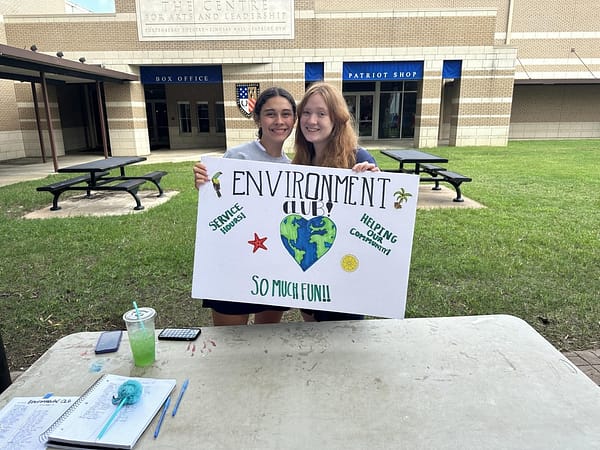COVID-19 crisis continues nationally and internationally (COVID-19 update 3/20/2020)
Up to date as of March 20, 2020
A CDC graphic of the United States indicating the number of reported COVID-19 cases by state.
The CDC page on COVID-19 cases in the United States is updated daily at noon, Monday through Friday.
As of March 20, 2020, all states in the United States of America have reported confirmed cases of coronavirus COVID-19. The total number of reported confirmed cases is 15,219, and the death toll in the United States has reached 201.
In response to the outbreak, many schools across the nation have closed their doors. Teachers will either utilize online resources to continue classes or extend teaching into the summer months. Across the nation, students of all ages and their teachers must come to terms with the fact that the remainder of the school year will be a challenging experience. Proms, sporting events, and practices have been postponed, and graduations have been rescheduled in many areas. Seniors are realizing that they may already have walked down the halls of the high schools with their friends and sat in their favorites teachers’ classrooms for the last time. For those in AP classes, the College Board has released several updates concerning plans to hold truncated, online exams with multiple test date options for each exam.
The United States government has also taken drastic steps in an effort to prevent rampant transmission of COVID-19, including barring all foreign nationals who have travelled to China, Iran, and a number of European countries from entering the US; U.S. citizens who have traveled to the aforementioned countries, their families, and those with whom they have had close contact are urged to self-quarantine to 14 days and are subject to testing upon entering the country. As hospitals across the nation brace for an influx of patients for which they are largely underprepared, President Donald Trump implemented the Defense Production Act (first instituted during the Korean War) in order to help increase the amount of desperately needed supplies, including ventilators and other medical equipment, to the hardest hit areas of the country. Travel across the Mexican and Canadian borders has been effectively prohibited except for trade. President Trump also announced a suspension of interest on federally owed student loans and that the US Department of Education will not enforce standardized testing requirements for this school year; furthermore, the White House announced the decision to extend the deadline to file taxes until July 15. In the wake of continued community spread of COVID-19, several states have postponed the democratic primaries.

The infamous coronavirus as rendered by graphics editor Alex Roberson
The outbreak of COVID-19 has had drastic effects on the economy of both the United States and the world. The stock market continues to plummet as more cases are diagnosed and businesses shut down in an effort to prevent community infection. Countries in which tourism is a primary source of revenue as well as airlines, cruise lines, and resorts are facing disastrous losses. As a result of the spread of COVID-19 in China and the closure of many of the nation’s factories, sectors of the economy in both the United States and other nations that rely heavily upon Chinese imports, including technological production, are struggling to maintain production and counteract decreasing income.
Cases of COVID-19 have been confirmed on all continents except Antarctica, with Italy recently surpassing China in the number of confirmed cases, and, according to a report from CNN, the worldwide death toll has reached 10,000. The Center for Disease Control (CDC) has issued a level 3 travel health notice recommending the avoidance of all nonessential travel to the following nations: most European countries (including Ireland and the United Kingdom), China, Iran, Malaysia, and South Korea. Due to the COVID-19 pandemic and widespread community transmission, the CDC has also issued a level 2 travel health notice recommending older adults and anyone with serious chronic medical conditions postpone all nonessential travel. Travelers should avoid contact with ill people, avoid touching their eyes, noses, or mouths, wash their hands frequently, and avoid traveling if ill. If you have travelled in the past 14 days, you should be intentional about maintaining social distancing for 14 days and closely monitor your health.
While the fatality rate of COVID-19 has remained around 3% overall, the virus is much deadlier for older adults and those with already weakened immune systems, so keep these members of our population in mind when making decisions concerning travel and community activities. The number of fatalities will be affected by the precautions taken by communities within the United States. The CDC recommends postponing gatherings of over 50 people and that employers be understanding of the situation so that employees do not feel pressured to attend work while ill. The seriousness of the COVID-19 pandemic should not be understated, but it is important to not panic. Panic will create more problems as the world struggles to cope with this deadly pandemic. The outbreak is already placing immense strain on the American healthcare system. Do not defy the decisions of federal, state, and local officials and monitor recommendations from the CDC. Failing to follow these recommendations is foolish, selfish, and will lead to further spread of the virus. Everyone is responsible for acting with utmost caution in order to protect their communities from the rampant spread of COVID-19.













